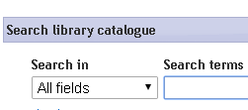Author(s): Kurien M; Andrews RE; Tattersall R; McAlindon ME; Wong EF; Johnston AJ; Hoeroldt B (Dept of Gastroenterology, Rotherham NHS Foundation Trust); Dear KL; Sanders DS
Source: Clinical Gastroenterology and Hepatology : the official clinical practice journal of the American Gastroenterological Association
Language: English
Publication Date: Nov 2016
Place of Publication: United States
DOI 10.1016/j.cgh.2016.10.032
Accession Number: 27840184
ISSN: 1542-7714
Publication Type(s): Journal Article
Keywords: Decision Making; Mixed Methods; Outcome; PEG; RIG
PubMed ID: 27840184
Database: PubMed
Abstract:
BACKGROUND & AIMS: Gastrostomies are widely used to provide long-term enteral nutrition to patients with neurologic conditions that affect swallowing (eg, following a cerebrovascular accident or for patients with motor neuron disease) or with oropharyngeal malignancies. The benefits derived from this intervention are uncertain for patients and caregivers. We conducted a prospective, multicenter cohort study to determine how gastrostomies affect health-related quality of life (HRQoL) in recipients and caregivers.
METHODS: We performed a study of 100 patients who received gastrostomies (55% percutaneous endoscopic gastrostomy, 45% radiologically inserted) at 5 centers in the United Kingdom, 100 caregivers, and 200 population control subjects. We used the EuroQol-5D (comprising a questionnaire, index, visual analogue scale) to assess HRQoL for patients and caregivers before the gastrostomy insertion and then 3 months afterward; findings were compared with those from control subjects. Ten patients and 10 caregivers were also interviewed after the procedure to explore quantitative findings. Findings from the EuroQol-5D and semi-structured interviews were integrated using a mixed-methods matrix.
RESULTS: Six patients died before the 3-month HRQoL reassessments. We observed no significant longitudinal changes in mean EuroQol-5D index scores for patients (0.70 before vs 0.710 after; P = .83) or caregivers (0.95 before vs 0.95 after; P = .32) following gastrostomy insertion. The semi-structured interviews revealed problems in managing gastrostomy tubes, social isolation, and psychological and emotional consequences that reduced HRQoL.
CONCLUSIONS: We performed a mixed-methods prospective study of the effects of gastrostomy feeding on HRQoL. HRQoL did not significantly improve after gastrostomy insertion for patients or caregivers. The lack of significant decrease in HRQoL after the procedure indicates that gastrostomies may help maintain HRQoL. Findings have relevance to those involved in gastrostomy insertion decisions and indicate the importance of carefully selecting patients for this intervention, despite the relative ease of insertion.
Source: Clinical Gastroenterology and Hepatology : the official clinical practice journal of the American Gastroenterological Association
Language: English
Publication Date: Nov 2016
Place of Publication: United States
DOI 10.1016/j.cgh.2016.10.032
Accession Number: 27840184
ISSN: 1542-7714
Publication Type(s): Journal Article
Keywords: Decision Making; Mixed Methods; Outcome; PEG; RIG
PubMed ID: 27840184
Database: PubMed
Abstract:
BACKGROUND & AIMS: Gastrostomies are widely used to provide long-term enteral nutrition to patients with neurologic conditions that affect swallowing (eg, following a cerebrovascular accident or for patients with motor neuron disease) or with oropharyngeal malignancies. The benefits derived from this intervention are uncertain for patients and caregivers. We conducted a prospective, multicenter cohort study to determine how gastrostomies affect health-related quality of life (HRQoL) in recipients and caregivers.
METHODS: We performed a study of 100 patients who received gastrostomies (55% percutaneous endoscopic gastrostomy, 45% radiologically inserted) at 5 centers in the United Kingdom, 100 caregivers, and 200 population control subjects. We used the EuroQol-5D (comprising a questionnaire, index, visual analogue scale) to assess HRQoL for patients and caregivers before the gastrostomy insertion and then 3 months afterward; findings were compared with those from control subjects. Ten patients and 10 caregivers were also interviewed after the procedure to explore quantitative findings. Findings from the EuroQol-5D and semi-structured interviews were integrated using a mixed-methods matrix.
RESULTS: Six patients died before the 3-month HRQoL reassessments. We observed no significant longitudinal changes in mean EuroQol-5D index scores for patients (0.70 before vs 0.710 after; P = .83) or caregivers (0.95 before vs 0.95 after; P = .32) following gastrostomy insertion. The semi-structured interviews revealed problems in managing gastrostomy tubes, social isolation, and psychological and emotional consequences that reduced HRQoL.
CONCLUSIONS: We performed a mixed-methods prospective study of the effects of gastrostomy feeding on HRQoL. HRQoL did not significantly improve after gastrostomy insertion for patients or caregivers. The lack of significant decrease in HRQoL after the procedure indicates that gastrostomies may help maintain HRQoL. Findings have relevance to those involved in gastrostomy insertion decisions and indicate the importance of carefully selecting patients for this intervention, despite the relative ease of insertion.


 RSS Feed
RSS Feed